What does liberation mean for Black Charlotteans on Juneteenth? This is what some said.
- Oops!Something went wrong.Please try again later.
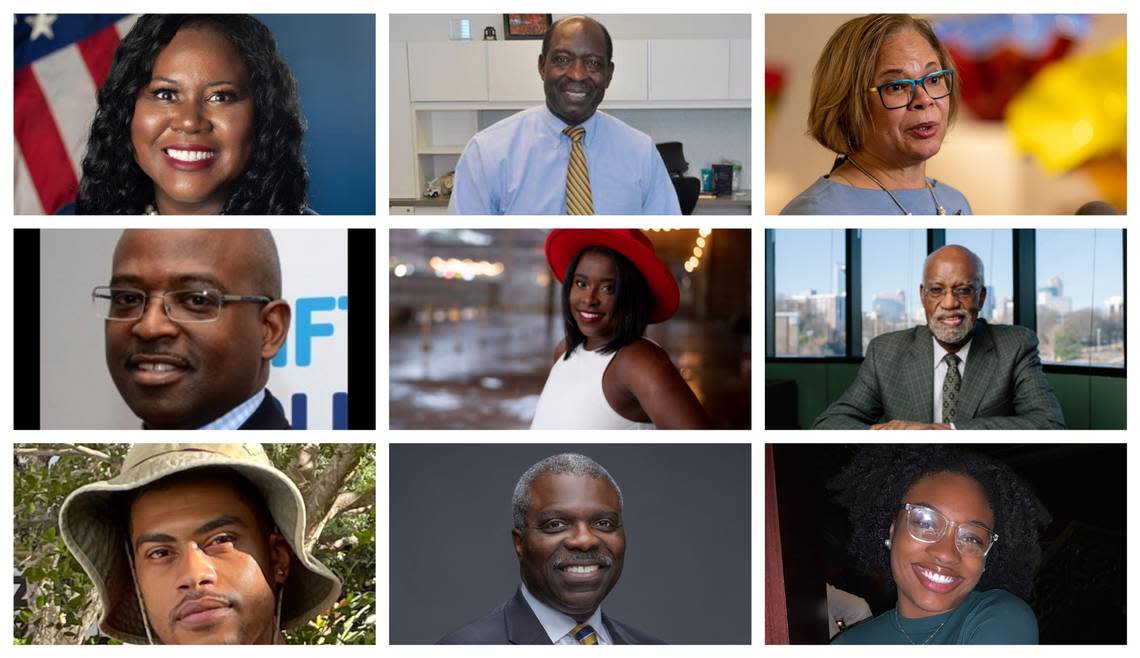
Juneteenth 2022
‘this I know for sure,’ written by NC Poet Laureate Jaki Shelton Green As Juneteenth becomes more commercialized, some in Charlotte see a ‘double-edged sword’ Juneteenth 2022: Where to celebrate the holiday around Charlotte on Sunday Rev. William J. Barber II: Some people still aren’t getting the memo about what true freedom looks like
Loosely affixed between the annual May reflection on the lives sacrificed by American military troops, and the July pageantry that marks the country’s collective celebration of its 245-year-old independence, is the comparatively quiet acknowledgment of Black emancipation.
It occurred — without much fanfare — on June 19, 1865. Enslaved Black people in Texas found out they were liberated some two years after the Emancipation Proclamation was signed.
Some 157 years later, Juneteenth — also known as Freedom Day — has turned into an expression of Black communal love with parades, block parties and community-based events. There even is a Miss Juneteenth.
Black people today are tangibly more free than the generations before them. African Americans enjoy relative autonomy and privileges not experienced by those who lived through segregation, white mob-led massacres and fought for civil rights.
But there is still much work to be done. After all, President Biden just last year signed a bill into law that made Juneteenth a federal holiday.
In Charlotte, Mayor Vi Lyles last year summoned the city’s Executive Leadership Council to address inequity and racial disparities through the Mayor’s Racial Equity Initiative. Lyles called the $250 million investment “a defining moment” in Charlotte’s history, though the results are not yet complete.
Though complete equity for Black people has yet to be achieved, there is always room to celebrate the freedoms wrestled for in America despite co-existing with the ominous shadow of white supremacy.
For Black Charlotteans, true liberation has different meanings and barometers.
We asked Black residents in Charlotte to share their thoughts about what Juneteenth means to them.
James Ferguson
Civil rights lawyer
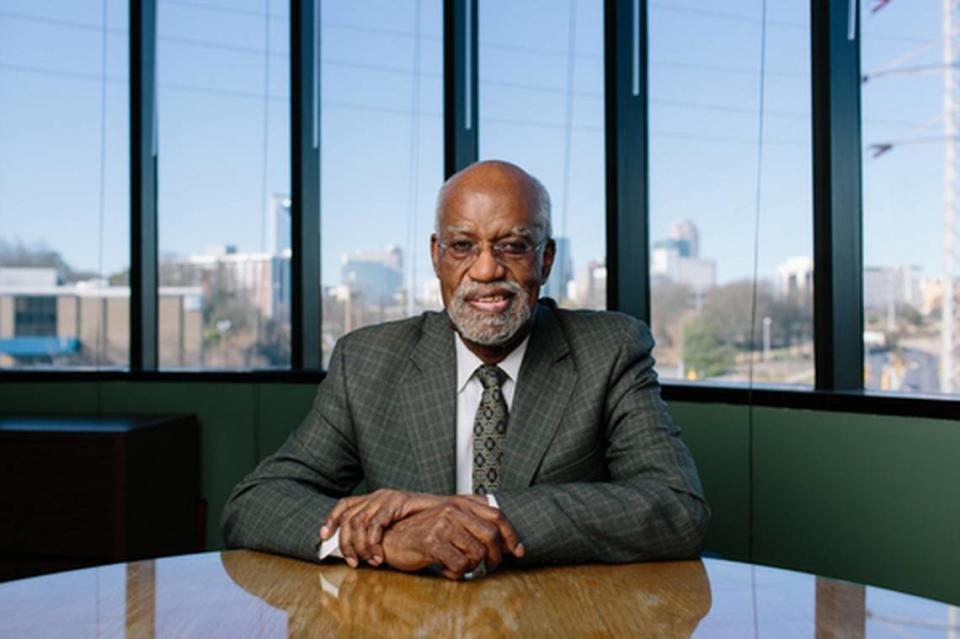
James Ferguson hasn’t missed any of Charlotte’s Juneteenth events. On the silver anniversary of the celebration in his adopted hometown, he’s not about to start.
Ferguson, perhaps the dean of the state’s African American attorneys, never heard of Juneteenth as a child growing up in Asheville. It wasn’t until after college that the history major became aware of the event.
Now he thinks Juneteenth has quickly taken on the significance it has long deserved, particularly given the contemporary debates over the police killings of George Floyd and others, the Black Lives Matter movement, and the pushback by conservatives over so-called Critical Race Theory.
Juneteenth celebrates the end of slavery in America. But it does not negate slavery’s continued impact on the American experience, the Charlotte attorney says.
“We have to start from the proposition that as much as any single event in history, slavery has defined America,” Ferguson says. “It defined who belonged and who didn’t. It defined who had power, who had wealth.”
It still does, Ferguson believes.
“Juneteenth is one way to recognize aspects of our history that some Americans for many reasons want to suppress,” he says.
“For us to ever make any progress in addressing the issues of race and slavery is to honestly confront them ... to confront them head on.
“Juneteenth reminds us just how difficult it’s been to get beyond slavery and all its legacies.”
— Michael Gordon
Vi Lyles
Charlotte mayor
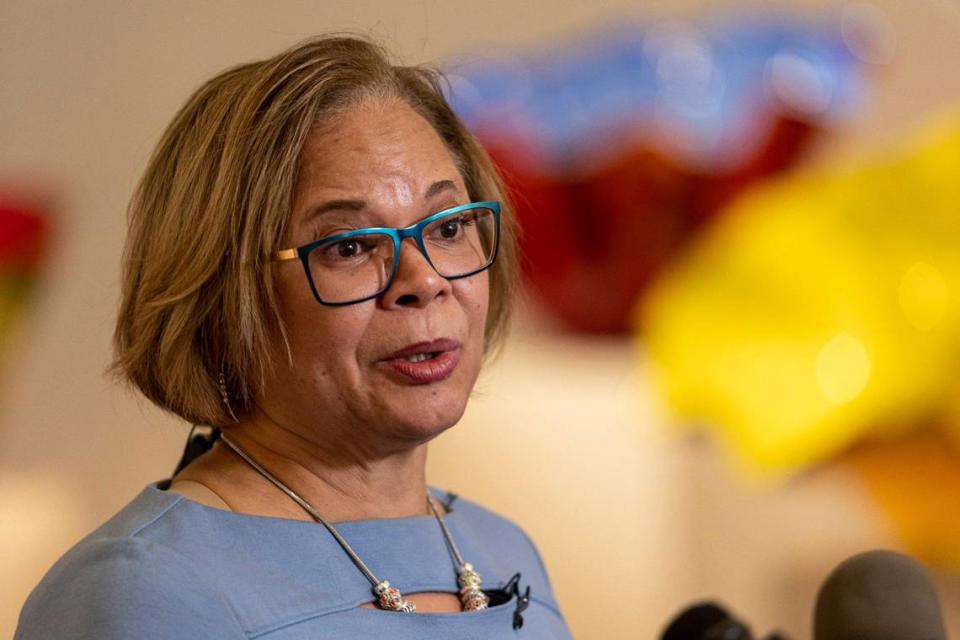
To Charlotte Mayor Vi Lyles, Juneteenth is part of her history as an African American woman. It’s important to her that people recognize that years after emancipation, some remained enslaved.
“Juneeteenth is a part of our history and I think what has made the most significant difference is that the entire country understands what it meant that years after emancipation people were still enslaved. And it wasn’t until this date was recognized that people could come out and be in a place where they had liberty, not necessarily justice, but liberty. Today I think that it helps us reflect upon our past, our history in this country and hopefully it gives us all inspiration to change that history as we go forward, to be a place where freedom has meaning for everyone, that diversity is accepted and welcome, that people feel safe where they are and they’re safe because they don’t have to worry about racial inequities and violence and all of that. For me, Juneteenth represents an opportunity, especially for African American people, to understand the gravity of what we had to endure but also the hope that we can make possible for the future.”
— Genna Contino
Michael DeVaul
National Director of Boys and Young Men of Color at YMCA of the USA
Having lived 60 years, it’s interesting how these things evolve. In many ways, I’m grateful that President Biden has made it a federal holiday, but I think people have to remember what it is that we’re celebrating, and why we’re celebrating it …
While we had those laws (abolishing slavery and advancing civil rights causes) and it’s a celebration of something, the country is actually currently in a state where unless people take it back, we will go backwards. This celebration of emancipation is, yes, about Black and brown people first, but it’s going to also be about humanity. We’re all getting locked down through some of this cycle of violence, and that is the opposite of freedom if we’re sitting at our homes and polarized and not talking to one another …
We ought to be working and thinking about (the celebration) as it relates to humanity. Is our current polarization locking other people down or limiting their freedom? …
My hope is people will, yes, celebrate it,because of people who look like me, Black people, but we’ll also look at it as a reminder against an enslaved mindset if we’re not careful …
What I’m saying is, let’s also use it as an opportunity to embrace humanity.
— Blake Douglas
Alesha Brown
Founder and executive director of nonprofit For the Struggle, which is focused on fighting systemic issues of racial and social injustice, and the managing attorney of Justice In Action Law Center, where she takes cases such as employment discrimination and police misconduct.
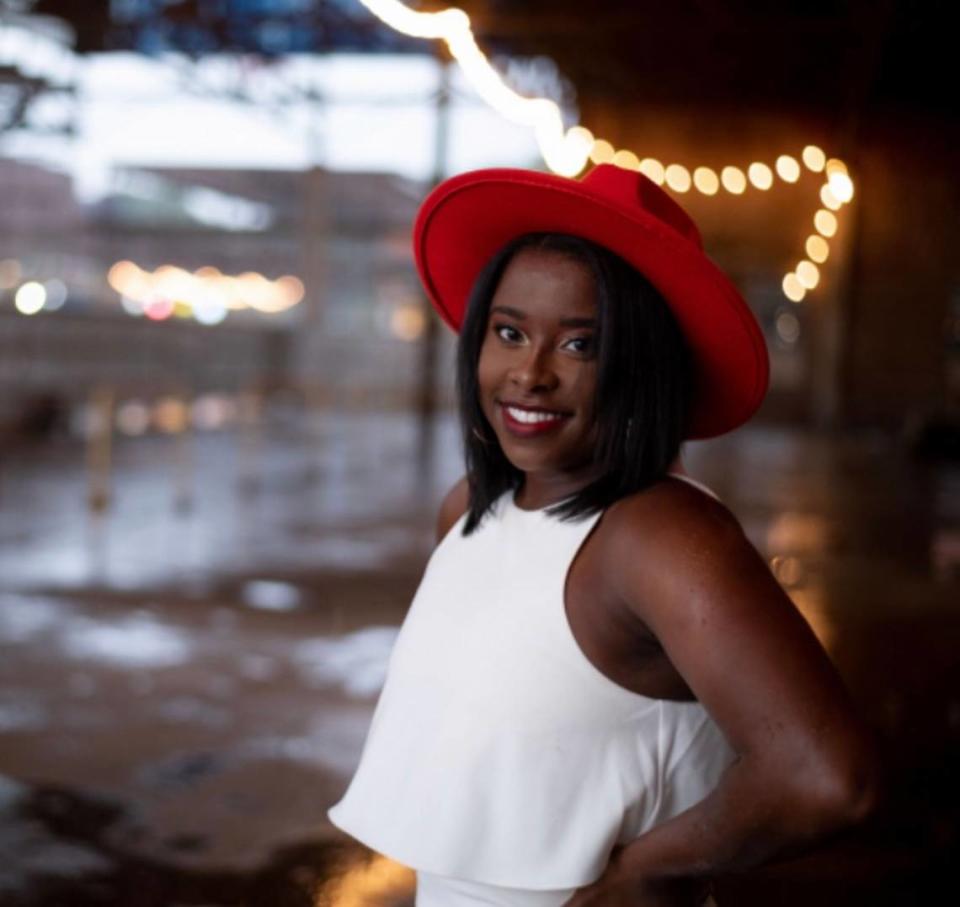
Freedom for Black people means so many different things. It means economic mobility. It means having access to generational wealth. It means being able to take advantage of systemic things that are not harmful to us. It means equitable education, housing, employment, environmental freedom and equitable access to health care. Literally any and everything you can think of that people need in life. Having freedom means that Black folks no longer have to bear the brunt of the negative impact of those things, but to take advantage of the positive and equitable aspects.
Juneteenth is important because, as a young civil rights attorney, I understand and I recognize that we can’t talk about achieving any of the things I just mentioned without understanding our past and how it has had tremendous implications on the current state of the Black community now. Understanding that Juneteenth means the celebration of freedom, liberation and unity within our community – that is incredibly important, which is why Juneteenth is very much an important holiday today.
— Evan Moore
Clarence D. “Clay” Armbrister
President of Johnson C. Smith University
Juneteenth is important in that it is a time for African Americans, as descendants of formerly enslaved people, to establish an important marker in the timeline of the more than 400-year history of our presence in America. When one actually reflects on this moment in time, in some respects it is remarkable what we as a people have overcome: we were legal chattel (more than 246 years) longer than we have been “free” (157 years). And I use the word “free” in quotes because many of us can share stories about our ancestors post-1865 that reflect the fact that Abraham Lincoln’s Emancipation Proclamation, issued in 1863 (two years before enslaved people in Texas were finally notified of their “freedom” in 1865), did not elevate us to the status of our former owners. In fact, my paternal grandfather, a disciple of Marcus Garvey, was nearly lynched, but “mercifully” his life was spared and he was run out of Miami in 1921 for promoting Black empowerment.
I don’t know that the meaning of Juneteenth has changed much over time to those of us who have celebrated it. However, I would say that with the reawakening of the social consciousness of America in the wake of George Floyd’s and others’ deaths, I think the meaning has changed, or maybe it has become known for the first time to some. I would argue that the most significant manifestation of that change is that Juneteenth is now celebrated as a national federal holiday. For many of the previously uninitiated, the national holiday serves as a learning opportunity to better understand the journey of African American people in this country.
— Anna Maria Della Costa
Abbigail Glen
founder of Shelves Bookstore

To be quite honest with you, there still has to be such a conversation around discrimination because we’re seeing that happen at all levels right now. We actually are shipping out tons of preorders for [Dr. Ibram X. Kendi’s] new book. I’ve already packaged them all up. So I’m hoping that conversations like these and then just all the conversations throughout the year, people can really kind of get to the root…it’s a good holiday, but what other work is happening outside of the holiday? What’s going on? Because there’s a lot of work that needs to be done. Clearly as we see that people are still being harmed simply for looking different.
The conversations need to be happening year round about not just about slavery in and of itself, but where we’re headed, where we are.
— Charlotte Kramon
Breana Fowler
Former student adviser to the Charlotte-Mecklenburg Board of Education who recently graduated from North Mecklenburg High School
After the government had the chance to do right, it instead created systematic oppression. This time highlights the role of mass incarceration, voter suppression, different tactics which were used to still suppress African-Americans — hence systematic racism. So although the enslaved African Americans were no longer on the plantation, African Americans are still subjected within the system. However Juneteenth is the time for us to celebrate Black culture and Black people who have shaped this country and pop culture!
I believe the day is important to acknowledge the different black communities which have been disappeared or wiped away from history from a national and local standpoint, for instance the Brooklyn community in Charlotte and the Tulsa race massacre (black Wall Street). Juneteenth also gives us a place to celebrate those around us and the Black culture! Hopefully the truth about this day would be recognized nationally and become omnipresent to all. Which I believe starts in the classroom.
— Anna Maria Della Costa
Richard “Stick” Williams
Retired vice president – corporate community affairs and president, The Duke Energy Foundation
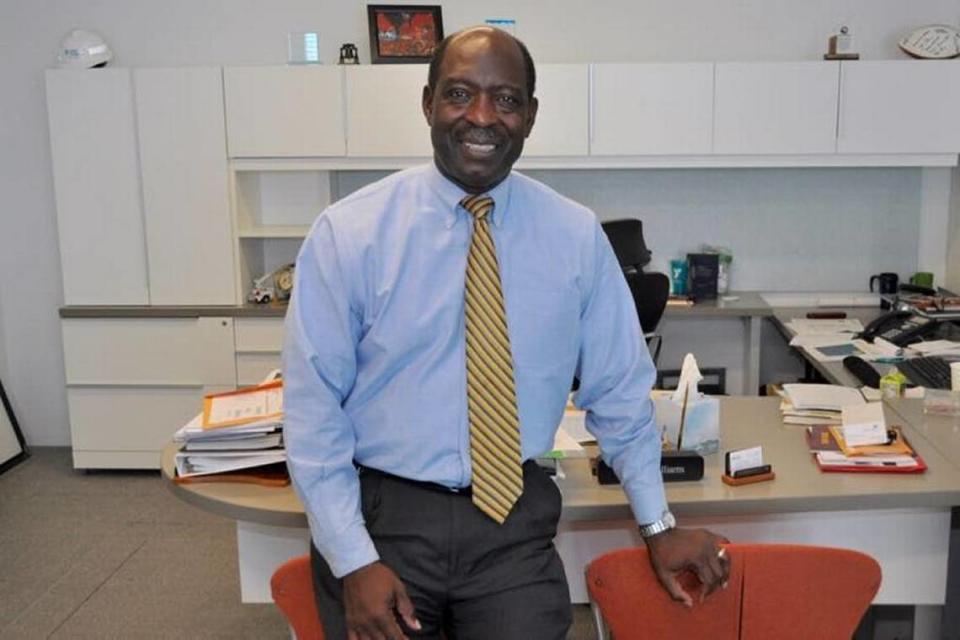
I have a tough time celebrating Juneteenth. I know that it’s a federal holiday now and is intended to celebrate the end of slavery. I greatly appreciate how it has spread consciousness around the country about the evil that was slavery. But the slaves in Galveston who were freed that June 19th had continued as slaves a full two years after the Emancipation Proclamation. Two additional years working and living as slaves!
I know that the Emancipation Proclamation did not automatically free all slaves, but that was the spirit of that federal proclamation. To withhold knowledge of that action and continue the enslavement of a people until federal troops arrived to enforce it is unfathomable to me.
I am chief beneficiary of all that freed slaves and the generations that followed accomplished. I thank God for the freedoms I now enjoy. I am conflicted about Juneteenth, though.
— Hannah Smoot
Braxton Winston
Charlotte City Council member
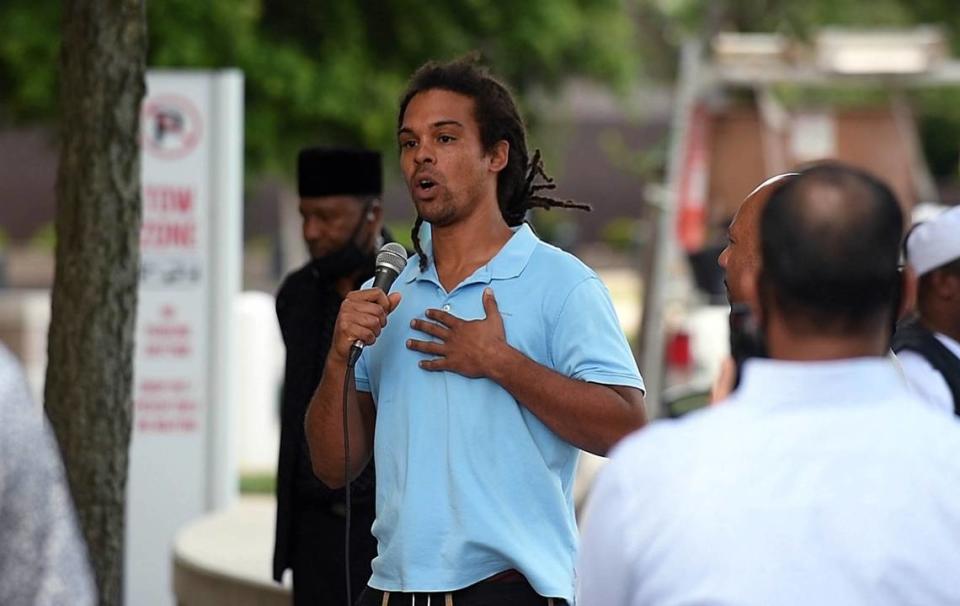
Juneteenth is new to Charlotte City Council member Braxton Winston.
He grew up in New York City and wasn’t taught about it in school. He didn’t hear about the holiday until he moved to North Carolina for school and had a roommate from Texas who told him all about Juneteenth.
Though it’s a day about emancipation, Winston struggles with the idea of celebrating Juneteenth.
“It’s a duality. How do you even celebrate something that nobody granted you?” Winston said. “We were all supposed to be free.”
— Genna Contino
Mark Jerrell
Mecklenburg Board of County Commissioners
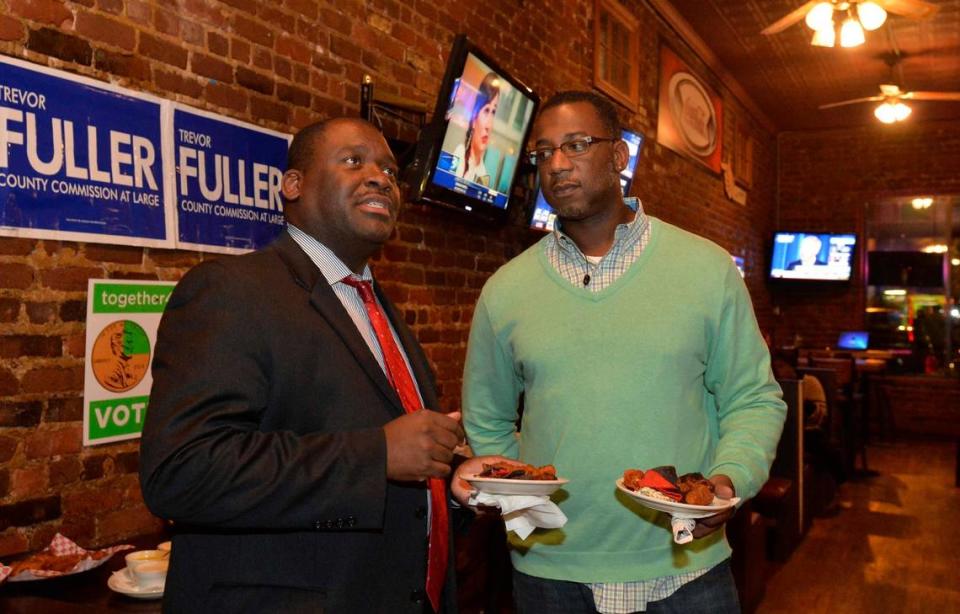
To Mecklenburg County Commissioner Mark Jerrell, Juneteenth is a time for African Americans to reflect on their unique struggle to gain freedom.
Juneteenth reminds us that our compass should always be pointed toward the humanity of all people and reinforce our commitment to ensuring that the same or similar atrocities are never inflicted on another people, no matter where they reside on this earth,” Jerrell said.
Juneteenth is an extremely important part of American history and the story of Black people in America. It allows all Americans to reflect and remember the unique experience of African Americans and our struggle for equality.
— Genna Contino
Dena King
U.S. Attorney
As it is often the case with pivotal moments in time, Juneteenth represents both an end and a beginning. Juneteenth is the effective end of slavery in America – that dark time in our country’s history, marred by the cruel and systemic violation of African Americans’ human rights and dignity.
But it is also a beginning. A new opportunity for our nation to fulfill its promise of guaranteeing the inalienable rights of life, liberty, and the pursuit of happiness for all people living within our borders.
For me, Juneteenth is also a reminder that freedom is not guaranteed, and that while freedom for all may be the law of the land, it is still not a reality for some among us. And most importantly, freedom doesn’t just happen. Rather, freedom is something we must work toward, fight for, protect, and cherish.
The temple of freedom rises when we build it together – brick by brick – by protecting equality and free speech. By guaranteeing freedom of religion and freedom of the press. By prohibiting discrimination because of race, color, religion, sex, familial status, national origin, disability, language, immigration and citizenship status, age, service member status, or genetic information. By ensuring equal access to justice and equal economic, housing and educational opportunities. By holding accountable those who commit criminal and civil rights violations, including deprivation of rights under the color of law. And by working hard to ensure that our voting rights are protected, and that we all have an equal opportunity to participate in the political process and have our vote counted.
As an American, as a person of color, as a lawyer, and as a federal prosecutor within our criminal justice system, each day, I try to do my part to help build our temple of freedom. This means ensuring that the law is applied equally to everyone, regardless of social, ethnic, economic, or other background. It means independence from improper influence, and being guided only by the facts and the law. It means looking at ways we can improve access to justice and eradicate all modern forms of slavery, like labor and sex trafficking. It means holding accountable those who violate the law, but also making sure we provide those who have paid their debt the tools they need to rejoin our society successfully.
The Department of Justice was created to ensure the “absolute equality of rights” for all Americans. And while we’ve made strides toward achieving that lofty goal, Juneteenth is a reminder that our work is far from finished and an opportunity to recommit to our core mission. That is how we can continue to build public trust. That is how we can protect freedom. And that is how we can support our democracy.
— Michael Gordon
Marcus Jones
Charlotte city manager
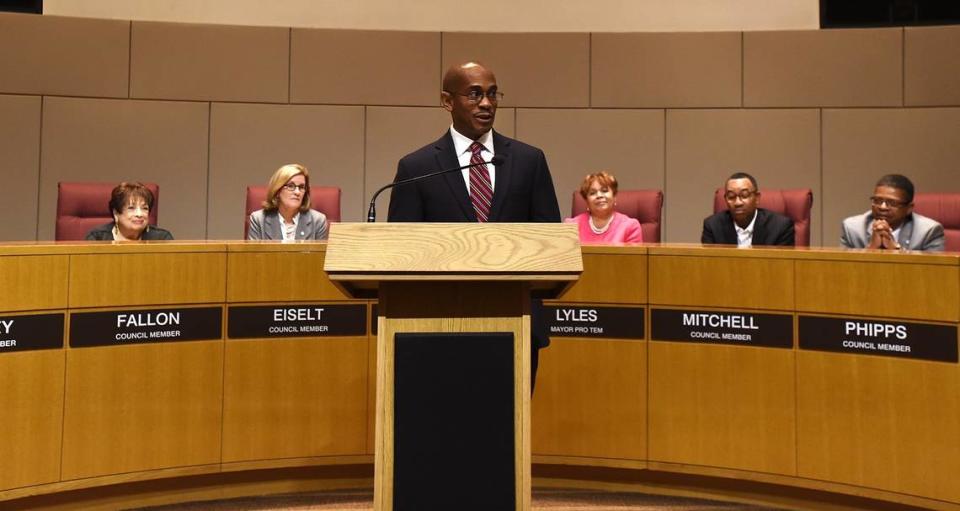
When I think about Juneteenth, I believe it is a time to celebrate, educate, and reflect on our history as a nation. In Charlotte, we are working to address systemic barriers and create pathways for economic upward mobility through our Corridors of Opportunity program, supporting and cultivating minority-owned businesses, providing opportunities for homeownership, and investing in re-imagining policing. Juneteenth is a reminder that strides have been made, but there is still work to be done when it comes to creating a vibrant community where everyone has the same opportunity to succeed.
— Genna Contino
Justin Ellis
A mixed media artist with the Brooklyn Collective, a collaborative of artists, leaders and entrepreneurs honoring the legacy of Charlotte’s historic Brooklyn community
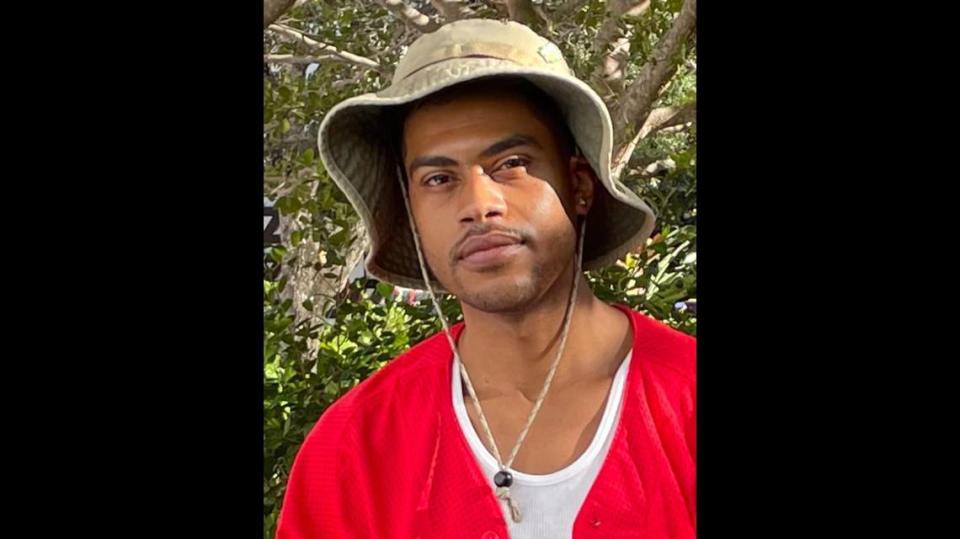
I feel like it’s such an important holiday one, because it’s one of my humble beginnings as an artist. The pandemic was horrible, but it started a new beginning for me to immerse myself and be a part of my community. Not just to be a part of the crowd, but to step out of the crowd and showcase my talents. And to me, it shows us as a community how much we’re growing, we’re developing, how much we strive. There’s so many people that lost their lives in the midst of, you know, these two years, if not three. And it’s just amazing, like I said, to continue to celebrate them and know that they’re being celebrated and that we’re still here to continue to keep going every single Juneteenth.
There’s a small word or a second quote, “it’s not a movement without momentum” and it’s like we have to continue to keep moving and just don’t stop. No matter if we’re going through those hard times and there’s other people that are going through hard times, as well, and they can help lift us and that’s what I think what Juneteenth is about. It’s about community, as well, and that you do have a community that is around you that’s able to help uplift you and continue to help you grow and want to see you grow.
— Lorenza Medley

